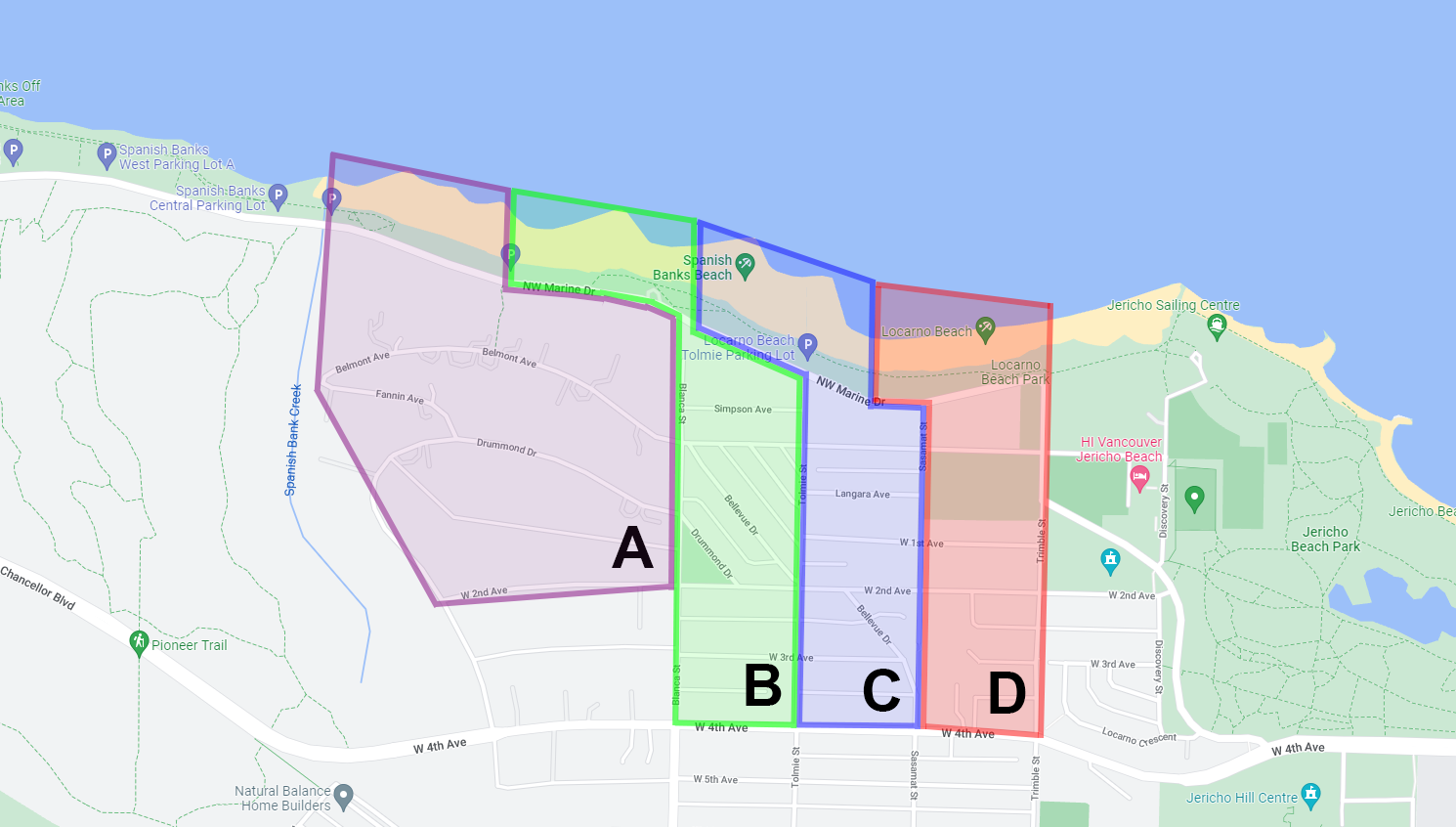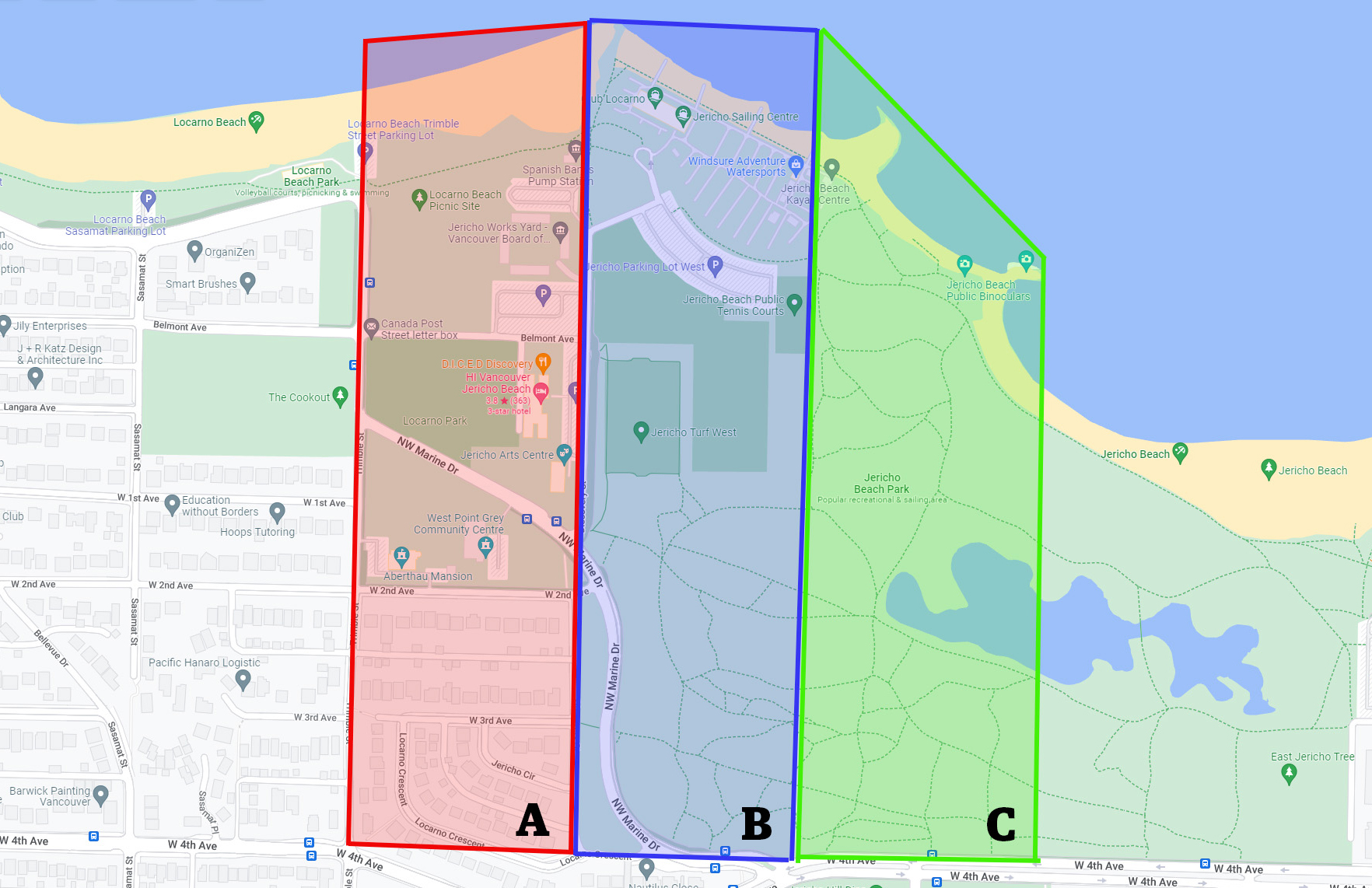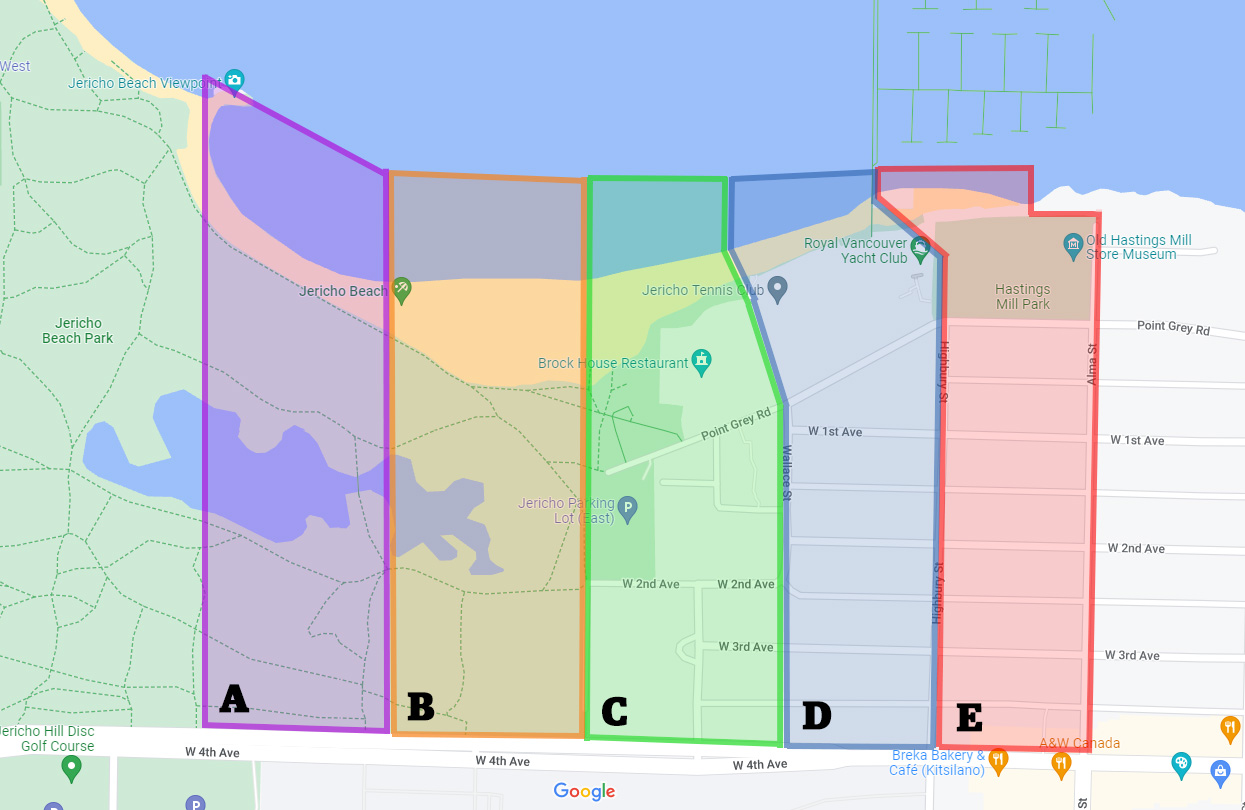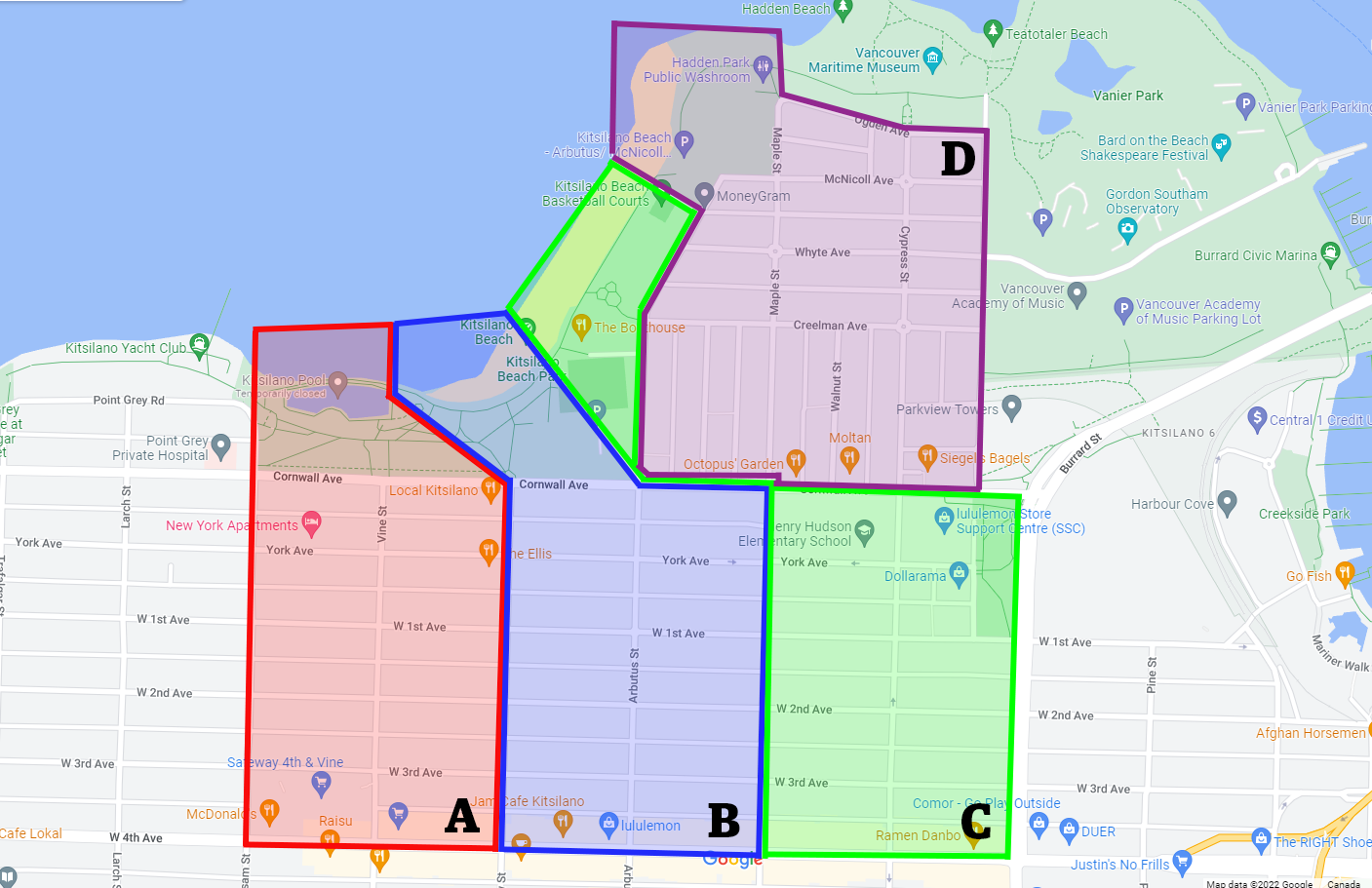Audio Visual Heritage Association of British Columbia (AVBC)
Organization
- Audio Visual Heritage Association of British Columbia (AVBC)
Email
Address
520 E 1st Ave
Vancouver, British Columbia V5T 0H2
Canada
Map It
Supervising Librarian/Archivist
- Name: Jana Grazley
- Email: jana.grazley@gmail.com
- Phone: (604) 442-6930
Purpose of the project:
The Audio Visual Heritage Association of British Columbia (AVBC) is a non-profit society incorporated in 1999 with a mandate to “promote and facilitate preservation, conservation and public access to the audio-visual heritage of British Columbia and Canada.” Since the mandate was developed, the needs of local organizations and individuals have shifted and AVBC has identified a gap through community surveys; not only are organizations underfunded and feel they lack the expertise to digitize/preserve media, many want to provide access to materials on their own terms. Therefore, AVBC works in a consulting role to support organizations’ needs around media preservation and management, as well as prioritizes education and mentorship around AV archival work.
Most recently AVBC has partnered with Creative BC to strategize and create a plan for their archive of legacy film and television materials stored in an off site storage facility and at risk of deterioration and loss. The purpose of this project is to work from an existing inventory to research the works represented and prepare archival appraisal recommendations and a strategy for next steps. The inventory contains descriptions of ca. 1300 media objects, mainly video tapes, with a few films and audio recordings. The materials were funded by the BC Film Commission (now Creative BC) and were deposited by the creators.
With the guidance and support of the AVBC project supervisors, the student would identify tiers of preservation priorities and recommend actions for each tier, and, through reading and conversations with stakeholders, determine where each work fits. An advantage of this approach is that the student could work remotely and wouldn’t need access to the physical materials. It would then be up to Creative BC to decide what to do with the results of the analysis, with the guidance of AVBC.
The project would be completed remotely, with meetings scheduled in person and/or over Zoom with the co-supervisors, Jana Grazley and Kristy Waller (Archivists, Board Members of AVBC). There would also be an opportunity to meet with Creative BC and Filmmaker/Writer Colin Browne who has been involved in this work.
Summary of activities required to carry out the project:
Orientation and project layout:
- Orientation to the Creative BC film/TV inventory and background
- Systems/standards training
- Familiarization with AV appraisal and prioritization methods
- Create a plan for research and mode of delivery
Research and documentation:
- Create appraisal criteria
- Analyze inventory
- Research each piece of media
- Document findings
- Contact creators if necessary/possible
- Identify AV materials to be prioritized for digitization/preservation
- Identify materials to be returned to creators or culled from collection
Documentation of process and next steps:
- Compile a document to report on work completed
- Compile recommendations for next steps
Expectations of the end result of the project, for both host and student:
By the end of the project the student will have prepared a document outlining recommendations for Creative BC and AVBC on the preservation, appraisal and prioritization of the legacy media. Ideally, the document will include information about existing copies in other collections, and a copyright analysis.
The student will gain experience working with media and understanding the complexities of AV appraisal and preservation. The student will be able to assist with planning requirements around access and preservation of the materials. The student will experience working in a non-profit archives setting and reflect on how their archival studies education applies in a professional context where archives are not the organization’s core business.
Time periods in which the project could be supervised:
- Winter Term 1 (September – December)
- Winter Term 2 (January – April)
- Summer Session, Term 1 (May – June)
- Summer Session, Term 2 (July – August)
Is there a deadline by which the project must be completed?
- No deadline.
Considering the project requirements, please suggest suitable coursework as pre-requisite or co-requisite:
Required:
- Completion of the MAS core
Recommended (one or more of the following):
- ARST 550; ARST 520; ARST 587 would be beneficial
Applications will be assessed on a rolling basis.
ARST 596 (For Archival Studies Students) – UBC Library, Rare Books and Special Collections
Organization
UBC Library, Rare Books and Special Collections
Email
claire.malek@ubc.ca
Address
3590 West 22nd Ave
Vancouver, BC V6S1J3
Canada
Map It
Supervising Librarian/Archivist
Name: Claire Malek
Email: claire.malek@ubc.ca
Purpose of the project:
The Rare Books and Special Collections Library at UBC-V seeks an MAS student to arrange and describe materials in a recent accrual to the Wallace B. Chung and Madeline H. Chung Collection. The Wallace B. Chung and Madeline H. Chung Collection contains more than 25,000 rare and unique items, including documents, books, maps, posters, paintings, photographs, tableware, and other artifacts. The Chung Collection represents an unique and extensive research collection of items in various formats related to early British Columbia history, immigration and settlement, particularly of Chinese people in North America, and the Canadian Pacific Railway Company. One of the most exceptional and extensive collections of its kind in North America, the Chung Collection has been designated as a national treasure by the Canadian Cultural Property Export Review Board. Permanently housed in UBC Library’s Rare Books and Special Collections, the Chung Collection is available to scholars and members of the public in British Columbia and beyond for generations to come. More information is available here: https://chung.library.ubc.ca/
Summary of activities required to carry out the project:
Utilize the Canadian Rules for Archival Description to create item-level descriptions for archival materials in the Chung Collection. Navigate the Access to Memory (AtoM) platform to publish descriptions to RBSC’s Archival Database. Arrange archival materials in existing series, and/or create new series as necessary. Process physical materials in appropriate archival housing, and consult with RBSC team members to creatively problem-solve issues relating to archival processing, arrangement and description.
Expectations of the end result of the project, for both host and student:
Host: Materials in the 2020 accrual to the Chung Collection will be arranged and described according to in-house practices and in compliance with the Canadian Rules for Archival Description. Student will complete the full 120 hours of the professional experience project in a schedule to be determined between host and student. There is an option for completing the project hours by working full-time during a four-week period which would span June 5th to June 30th, 2023. Alternatively, the project could be spread across both Summer Terms, or take place over Summer Session Term 2.
Student: Will receive training and gain experience in a hands-on archival processing, arrangement and description project, working in the context of an academic Rare Books and Special Collections branch.
Time periods in which the project could be supervised:
- Summer Session, Term 1 (May – June)
- Summer Session, Term 2 (July – August)
Is there a deadline by which the project must be completed?
- September 2023
Considering the project requirements, please suggest suitable coursework as pre-requisite or co-requisite:
Prefer candidates who have completed the Archives Core, but will consider candidates with relevant work experience.
Applications will be assessed on a rolling basis.
LIBR/ARST 596 – BC Non-Profit Housing Association
Organization
BC Non-Profit Housing Association
Email
Address
220-1651 Commercial Drive
Vancouver, BC V5L3Y3
Canada
Map It
Supervising Librarian/Archivist
Name: Jackie Kanyuk
Email: jackie@bcnpha.ca
Phone: (236) 521-0619
Purpose of the project:
Please note: we have no Supervising Librarian or Archivist at BCNPHA and would need a faculty member to co-supervise.
The purpose of this project is to create a cataloguing protocol and reorganization of an electronic file structure, removing duplications and improving navigation for overall efficiency and easier access to a team who delivers energy coaching to non-profit housing providers.
Background: The Asset Management Department at the BC Non-Profit Housing Association undertakes energy coaching, capital planning and rebate wayfinding for non-profit housing providers. Currently the department uses a basic file structure in a cloud-based data sharing system (MS One Drive), but without formal filing protocol or guidelines, navigation difficulties slow down team workflows overall.
Summary of activities required to carry out the project:
We envision:
1. Information gathering phase
Purpose: to become familiar with current file use, challenges, priorities, etc.
Possible activities include:
a) 1-2 facilitated workshops with our team of Managers and Building Energy Specialists
b) and/or survey development and collection via MS Forms
2. Analysis and report-back
Purpose: to synthesize feedback in the information gathering phase, identify gaps and opportunities
a) Presentation to reflect back challenges heard and to propose filing protocol and reorg approach
3. Working Group
Purpose – to recruit a smaller group to directly support the operationalization of the filing protocol and reorganization
a) A series of working meetings where staff discuss and test the filing protocol and reorganization
4. Final Presentation
Purpose – to provide a working structure for the team to work with and maintain
a) A presentation of a trial layout of optimized folders and subfolders, with accompanying filing protocol and/or guidelines
b) A written summary of recommendations to maintain the new system, with suggested timelines and milestones
Expectations of the end result of the project, for both host and student:
We expect the student to have a complete project for their portfolio, with experience taking a client from start to finish on problem solving, scope development, and delivery of a filing protocol system development.
BCNPHA expects to:
- Have a clear pathway to creating and maintaining an improved filing protocol for overall improved navigation
- Be able to provide a solid reference for the student’s future employment opportunities.
- Create a feature article for our quarterly magazine to promote both the UBC program and the student’s achievements.
Time periods in which the project could be supervised:
- Winter Term 1 (September – December)
- Summer Session, Term 1 (May – June)
Is there a deadline by which the project must be completed?
- No; preferable to complete by year end.
Considering the project requirements, please suggest suitable coursework as pre-requisite or co-requisite:
- Management of Current Records, ARST 516 2022 W Credits: 3
Applications will be assessed on a rolling basis.
Searching for Trust
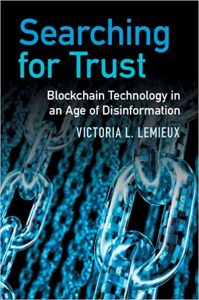
Searching for Trust explores the intersection of trust, disinformation, and blockchain technology in an age of heightened institutional and epistemic mistrust. It adopts a unique archival theoretic lens to delve into how computational information processing has gradually supplanted traditional record-keeping, putting at risk a centuries-old tradition of the ‘moral defense of the record’ and replacing it with a dominant ethos of information-processing efficiency. The author argues that focusing on information-processing efficiency over the defense of records against manipulation and corruption (the ancient task of the recordkeeper) has contributed to a diminution of the trustworthiness of information and a rise of disinformation, with attendant destabilization of the epistemic trust fabric of societies. Readers are asked to consider the potential and limitations of blockchains as the technological embodiment of the moral defense of the record and as means to restoring societal trust in an age of disinformation.
